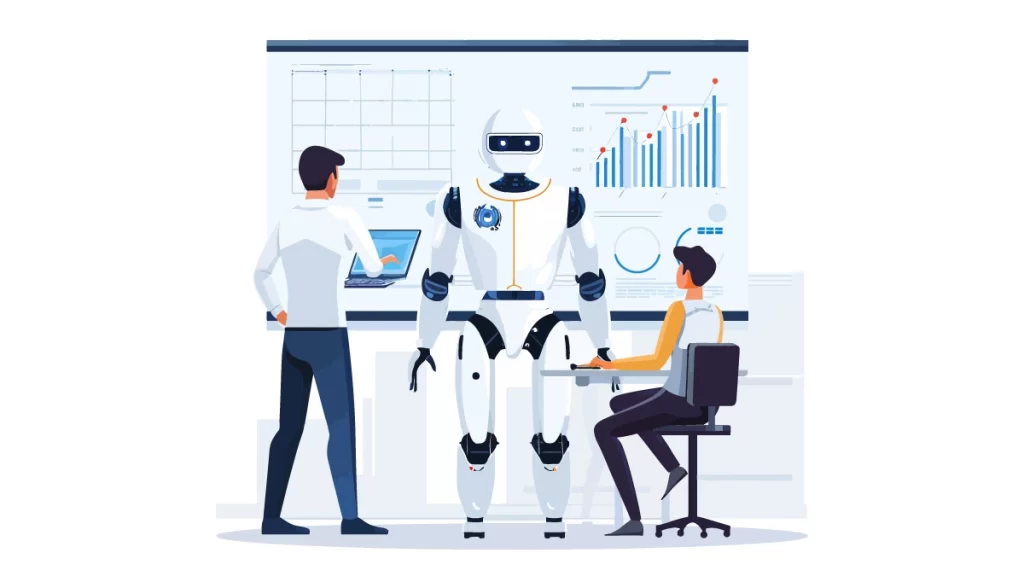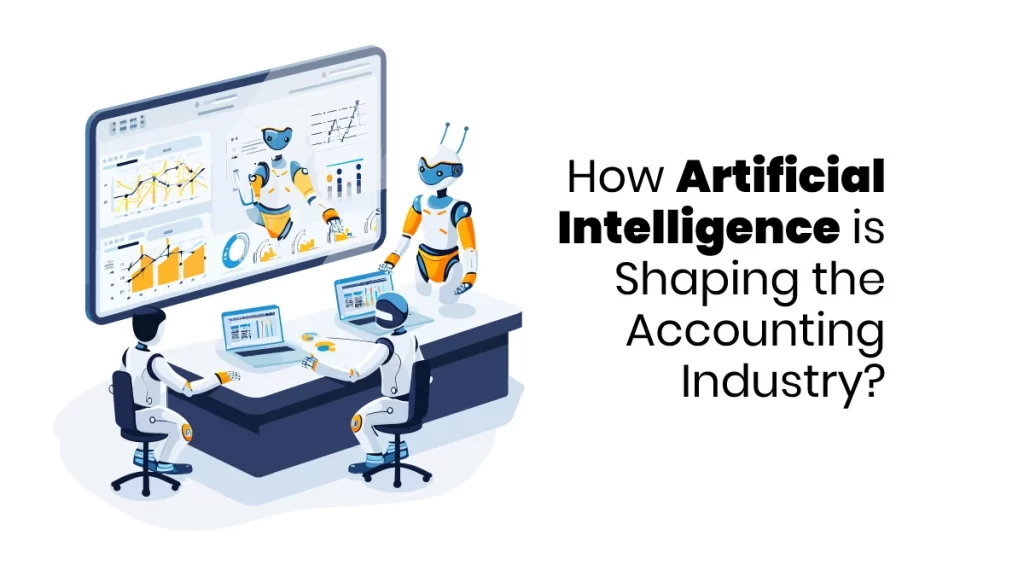Artificial intelligence in the accounting industry has become a more famous topic in technology over the last year. But what does it mean for the accounting industry, and how can firms capitalize on it?
Does artificial intelligence make you nervous or excited? Some accountants may think AI will bring more changes, but few people may fear whether it will bring good changes or bad changes in this era.
You might already be using AI without knowing it, mainly if you use tools that automate tasks like paying bills or collecting payments. AI in accounting means using new technology to enhance what finance professionals can do. Here’s a simple explanation of what you need to know about AI in accounting.
What is AI in accounting?
AI in accounting means using special computer programs to help with accounting tasks. AI can do two main things. It can help check financial information, determine trends, or make predictions. It can also help with boring jobs like dealing with invoices and keeping track of money coming in and going out. This makes accounting work faster and more accurate, with fewer mistakes and less time spent.
How is AI used in accounting?
CPA Practice Advisor magazine report says that 72% of accounting professionals think artificial intelligence in the accounting industry will become more common in the next three years. Right now, accounting and finance departments use AI for various tasks like:
- Dealing with invoices
- Finding fraud
- Guessing about money in the future
- Planning budgets and guesses
- Sorting out taxes
- Doing basic accounting jobs like typing numbers
- Helping with checks
AI tools use special math to learn and improve at these jobs, making them more accurate, faster, and better at following the rules.
Examples of Artificial Intelligence in Accounting
Artificial intelligence tools in the accounting industry are helping companies with their accounting tasks by automating tasks, reducing mistakes, and making work faster. But remember, humans must still check AI’s work to ensure everything is correct. AI is like a helper, not a recruiter. Here are some examples of how AI and machines help with accounting:
Automated Bookkeeping
Automated bookkeeping means using AI to classify and record financial transactions automatically. The system learns from past entries, so it needs less human help.
For example, QuickBooks Online is a tool for automated bookkeeping. It uses AI to sort transactions, match bank statements, and make financial reports. This saves time and makes fewer mistakes, letting accountants focus on more complex jobs.
Invoice Processing
AI tools are excellent for handling invoices. They do the work automatically, which means fewer mistakes, better accuracy, and faster payments.
Financial Forecasting
Financial forecasting predicts a company’s future performance based on past numbers. With AI tools, accountants can make better guesses, see patterns, and make intelligent choices.
Trends in AI Adoption in Accounting
More use of cloud-based systems
Nowadays, many businesses are using cloud-based accounting solutions. These systems are flexible, easy to use, and cost less. They also give real-time data and let accounting teams and clients work together.

Combining AI with other business jobs
Artificial intelligence tools in the accounting industry are integrated with other business tasks, such as sales, tracking expenses, and paying employees. This makes work smoother and saves time. It also helps understand the whole business better so decisions can be more intelligent.
The Impact of AI on Accountants
Artificial Intelligence (AI) is changing accounting, affecting what skills are needed, what jobs there are, and how businesses work. Let’s see how impact of AI on accounting makes accounting different, including doing more advanced work, requiring new skills and employment, and changing how businesses operate.
- AI is doing the usual accounting tasks, so accountants can focus on more important things like giving competent advice and improving businesses.
- Since AI is doing regular jobs, accountants must learn new skills like understanding data and using machine learning. New jobs like AI specialists and data scientists will also be needed.
- AI is letting accounting firms offer extra services, such as guessing what might happen in the future. It also changes how businesses work by allowing new companies to come in with new ideas.
Challenges of AI in accounting
Even though AI helps accountants, it has some problems, too—and that’s okay. AI can’t replace human decision-making or the care needed when talking to stakeholders. Here are some challenges AI faces:
Handling safety
- There are worries about safety when using third-party AI chatbots to access client financial info for quick reports.
- AI sometimes doesn’t understand what’s going on in certain documents.
- AI might not know technical terms, like legal words.
Failing to give personal advice
- AI won’t give any personal advice. But AI is getting better quickly. Some experts say AI gets twice as good every 3.4 months.
Overcoming Common Challenges in Using AI for Accounting
AI is making significant changes, but companies need some help when using it. Some common issues include getting the correct data, cost, and privacy.
Finding the right data
AI needs good data to work. So, the first step is finding the correct data. This can be hard because different organizations use different data. Companies must talk to AI experts to determine the best way to do this and ensure their digital tools help.
Keeping data safe
AI needs lots of data to work well. However, storing all that data can be challenging for businesses. And when companies use data to automate tasks, data security can be tricky.
That’s why it’s essential for businesses using AI to have an excellent way to manage their data. This helps companies to use their data for AI projects and keeps sensitive data safe.
Setting up infrastructure
Many businesses still use old systems, which makes using AI hard. To make AI work fast, companies need good computers and systems. According to McKinsey, businesses that want to use AI must establish a strong and flexible system to support AI programs.
Adding AI to current business
Adding artificial intelligence to current business systems can be challenging. To do it right, businesses need help from AI experts who know how to make AI work from start to finish. This helps companies add AI smoothly and use it effectively.
Tricky AI Models and Hard Algorithms
AI algorithms are a big part of how business intelligence works. Companies that want to use AI should understand how it works and be able to change it. Making and training AI models might need a lot of people, which can be challenging for a company. But using AI in business gives more good things than bad things.
Artificial Intelligence is making a big difference in accounting and finance. With AI and other new tech, companies can do things better, faster, and cheaper. Plus, it helps make smarter decisions. As more companies use AI, it’s essential to do it right. This means setting clear goals, having a good team that understands AI, and constantly checking to ensure AI is doing its job well.
Joining accounting courses helps one acquire more knowledge about AI in finance. Our accounting training covers CBAT, PGBAT, Income Tax, Practical Accounting Training, PGDIFA, DIA, GST, SAP FICO, Tally Prime, and MS Excel. These programs are for graduates and working professionals.
At Finprov, we emphasize practical training to give you fundamental accounting skills. We also assist with job placements to help you start a rewarding career after your course. Contact Finprov today to learn how you can improve your accounting skills for a successful future.





















